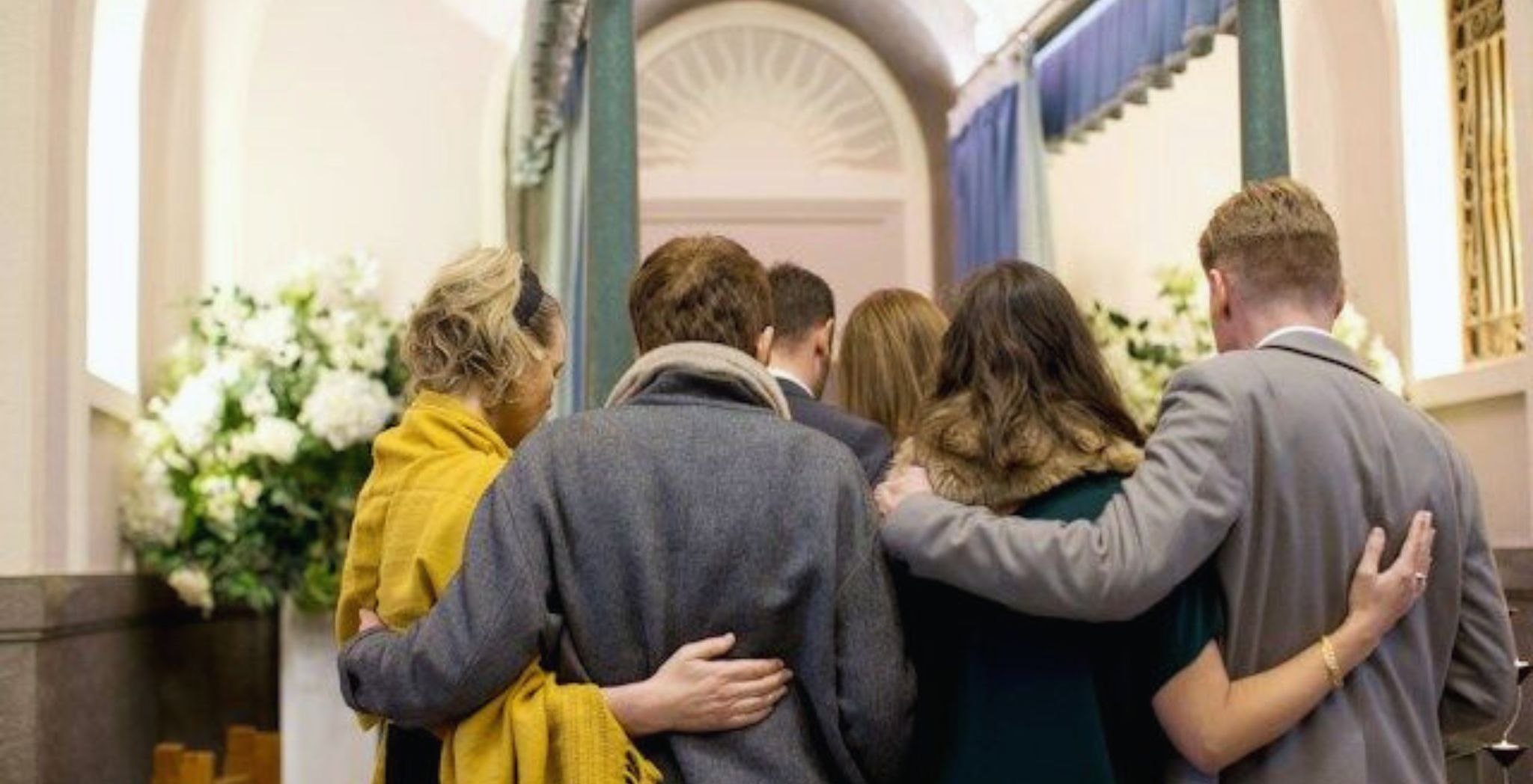In times of loss and grief, memorial services are poignant reminders of the lives we cherish and the legacies they leave behind. They serve as a way for loved ones to come together, share memories, and find solace in each other’s company. But what exactly is a memorial service, and why is it so significant in grieving? Let’s delve into this question, drawing insights from the practices observed by Cherish Funerals. A memorial service is a ceremony to honour and remember someone who passed away. Unlike traditional funerals, which often involve the deceased’s body, memorial services focus more on celebrating the person’s life and legacy. They provide an opportunity for family and friends to gather, share stories, offer support, and find comfort in each other’s presence.
A memorial service is a ceremony to honour and remember someone who passed away. Unlike traditional funerals, which often involve the deceased’s body, memorial services focus more on celebrating the person’s life and legacy. They provide an opportunity for family and friends to gather, share stories, offer support, and find comfort in each other’s presence. The timing of a memorial service can vary depending on cultural, religious, and personal preferences. Some may choose to hold the service shortly after the death, while others may opt for a later date to allow for sufficient time for grieving and planning. In Christian funerals, for example, memorial services are often held within a few days to a week after the passing.
The timing of a memorial service can vary depending on cultural, religious, and personal preferences. Some may choose to hold the service shortly after the death, while others may opt for a later date to allow for sufficient time for grieving and planning. In Christian funerals, for example, memorial services are often held within a few days to a week after the passing. The choice of venue for a memorial service is deeply personal and significantly impacts the atmosphere and experience of the ceremony. Here are some common places where memorial services are held:
The choice of venue for a memorial service is deeply personal and significantly impacts the atmosphere and experience of the ceremony. Here are some common places where memorial services are held: Organising a memorial service requires thoughtful attention to detail, ensuring that each element contributes to a ceremony that not only honours the life and legacy of the deceased but also provides comfort and support to those grieving. Here are some key steps to guide you through the planning process:
Organising a memorial service requires thoughtful attention to detail, ensuring that each element contributes to a ceremony that not only honours the life and legacy of the deceased but also provides comfort and support to those grieving. Here are some key steps to guide you through the planning process: As the memorial service draws to a close, attendees often have the opportunity to say their final goodbyes in their way. This may involve viewing photographs or mementoes of the deceased, sharing personal reflections, or participating in symbolic rituals. For some, this moment of closure serves as a comforting reminder that although the physical presence of their loved one may be gone, their spirit lives on in the memories and hearts of those they touched.
As the memorial service draws to a close, attendees often have the opportunity to say their final goodbyes in their way. This may involve viewing photographs or mementoes of the deceased, sharing personal reflections, or participating in symbolic rituals. For some, this moment of closure serves as a comforting reminder that although the physical presence of their loved one may be gone, their spirit lives on in the memories and hearts of those they touched.
Understanding the Essence of a Memorial Service
 A memorial service is a ceremony to honour and remember someone who passed away. Unlike traditional funerals, which often involve the deceased’s body, memorial services focus more on celebrating the person’s life and legacy. They provide an opportunity for family and friends to gather, share stories, offer support, and find comfort in each other’s presence.
A memorial service is a ceremony to honour and remember someone who passed away. Unlike traditional funerals, which often involve the deceased’s body, memorial services focus more on celebrating the person’s life and legacy. They provide an opportunity for family and friends to gather, share stories, offer support, and find comfort in each other’s presence.How Long After the Death Do You Hold a Memorial Service?
 The timing of a memorial service can vary depending on cultural, religious, and personal preferences. Some may choose to hold the service shortly after the death, while others may opt for a later date to allow for sufficient time for grieving and planning. In Christian funerals, for example, memorial services are often held within a few days to a week after the passing.
The timing of a memorial service can vary depending on cultural, religious, and personal preferences. Some may choose to hold the service shortly after the death, while others may opt for a later date to allow for sufficient time for grieving and planning. In Christian funerals, for example, memorial services are often held within a few days to a week after the passing.Places to Hold a Memorial Service
 The choice of venue for a memorial service is deeply personal and significantly impacts the atmosphere and experience of the ceremony. Here are some common places where memorial services are held:
The choice of venue for a memorial service is deeply personal and significantly impacts the atmosphere and experience of the ceremony. Here are some common places where memorial services are held:1. Religious Institutions
Churches, mosques, temples, synagogues, and other places of worship often serve as traditional venues for memorial services. These spaces provide a sense of solemnity and spiritual comfort for those grieving, especially if the deceased had a strong religious affiliation.2. Community Centers
Community centres, civic halls, or similar facilities offer versatile spaces that can accommodate larger gatherings. These venues are often chosen for their accessibility, ample seating, and flexibility in setup and catering.3. Outdoor Locations
Parks, gardens, or scenic outdoor settings provide a serene backdrop for a memorial service, particularly for those who enjoy nature or outdoor activities. Holding the service outdoors can create a peaceful atmosphere and allow attendees to find solace in the beauty of their surroundings.4. Private Residences
Some families opt to hold memorial services in the comfort of their own homes or the home of the deceased. This intimate setting can foster a sense of closeness and familiarity, allowing attendees to gather in a relaxed environment and share memories in a more personal setting.5. Funeral Homes
Many funeral homes offer chapel or reception room facilities for hosting memorial services. These venues are equipped with audiovisual equipment, seating arrangements, and catering services, providing a convenient option for families who prefer to have everything organised in one place.6. Virtual Spaces
With the rise of technology, virtual memorial services have become increasingly popular, especially when physical gatherings are not feasible. Online platforms allow friends and family worldwide to come together virtually to honour and remember the deceased, sharing stories, photos, and memories in real time.Planning a Memorial Service
 Organising a memorial service requires thoughtful attention to detail, ensuring that each element contributes to a ceremony that not only honours the life and legacy of the deceased but also provides comfort and support to those grieving. Here are some key steps to guide you through the planning process:
Organising a memorial service requires thoughtful attention to detail, ensuring that each element contributes to a ceremony that not only honours the life and legacy of the deceased but also provides comfort and support to those grieving. Here are some key steps to guide you through the planning process:1. Set the Date and Time
Choose a date and time for the memorial service that works for the majority of attendees. Consider factors such as travel arrangements for out-of-town guests and any religious or cultural traditions that may influence the timing.2. Select a Venue
Determine the location for the memorial service based on the number of attendees, personal preferences, and logistical considerations. Common venues include religious institutions, community centres, outdoor spaces, funeral homes, or private residences.3. Create a Program
Develop a program outline that includes the order of events, speakers, readings, music selections, as well as any rituals or traditions that hold significance for the departed and their dear ones. Consider incorporating elements that reflect the personality, values, and interests of the person being honoured.4. Arrange Speakers and Performers
Invite family members, friends, clergy, or others who knew the deceased well to share memories, reflections, or readings during the memorial service. Coordinate with musicians, vocalists, or other performers if live music or special performances are desired.5. Coordinate Logistics
Arrange logistical details such as seating arrangements, audiovisual equipment, floral arrangements, catering services, and any special accommodations for guests with disabilities or special needs. Ensure that the venue is accessible and appropriate for the planned activities.6. Prepare Visual Tributes
Gather photographs, videos, or other visual materials to create a slideshow, memory board, or display celebrating the deceased’s life. Consider including personal mementoes, memorabilia, or favourite possessions that highlight meaningful moments and cherished memories.7. Communicate with Attendees
Provide clear communication to attendees regarding the date, time, location, and any special instructions or requests for the memorial service. Consider creating a memorial website, social media event page, or printed invitations to share information and gather RSVPs.8. Facilitate Meaningful Rituals
Incorporate meaningful rituals or traditions into the memorial service, such as candle-lighting ceremonies, symbolic gestures, prayers, or moments of silence. These rituals can provide comfort, closure, and opportunities for collective remembrance and healing.9. Offer Support and Resources
Be mindful of the emotional needs of attendees and provide resources or support services as needed, such as grief counselling, support groups, or referrals to community organisations. Encourage attendees to share memories, stories, and support during and after the memorial service.10. Document and Preserve Memories
Consider recording or documenting the memorial service through photographs, videos, or written accounts to create a lasting tribute and preserve memories for future generations. Share these memories with family members and friends as a cherished keepsake.Many families work with funeral directors or event planners, such as those at Cherish Funerals, to help coordinate the details and make sure that the service aligns with the desires of the deceased and their loved ones. Pre planning funerals have also become increasingly common, allowing individuals to outline their preferences in advance and relieve their families of the burden during their grief.The Final Goodbyes
 As the memorial service draws to a close, attendees often have the opportunity to say their final goodbyes in their way. This may involve viewing photographs or mementoes of the deceased, sharing personal reflections, or participating in symbolic rituals. For some, this moment of closure serves as a comforting reminder that although the physical presence of their loved one may be gone, their spirit lives on in the memories and hearts of those they touched.
As the memorial service draws to a close, attendees often have the opportunity to say their final goodbyes in their way. This may involve viewing photographs or mementoes of the deceased, sharing personal reflections, or participating in symbolic rituals. For some, this moment of closure serves as a comforting reminder that although the physical presence of their loved one may be gone, their spirit lives on in the memories and hearts of those they touched.
